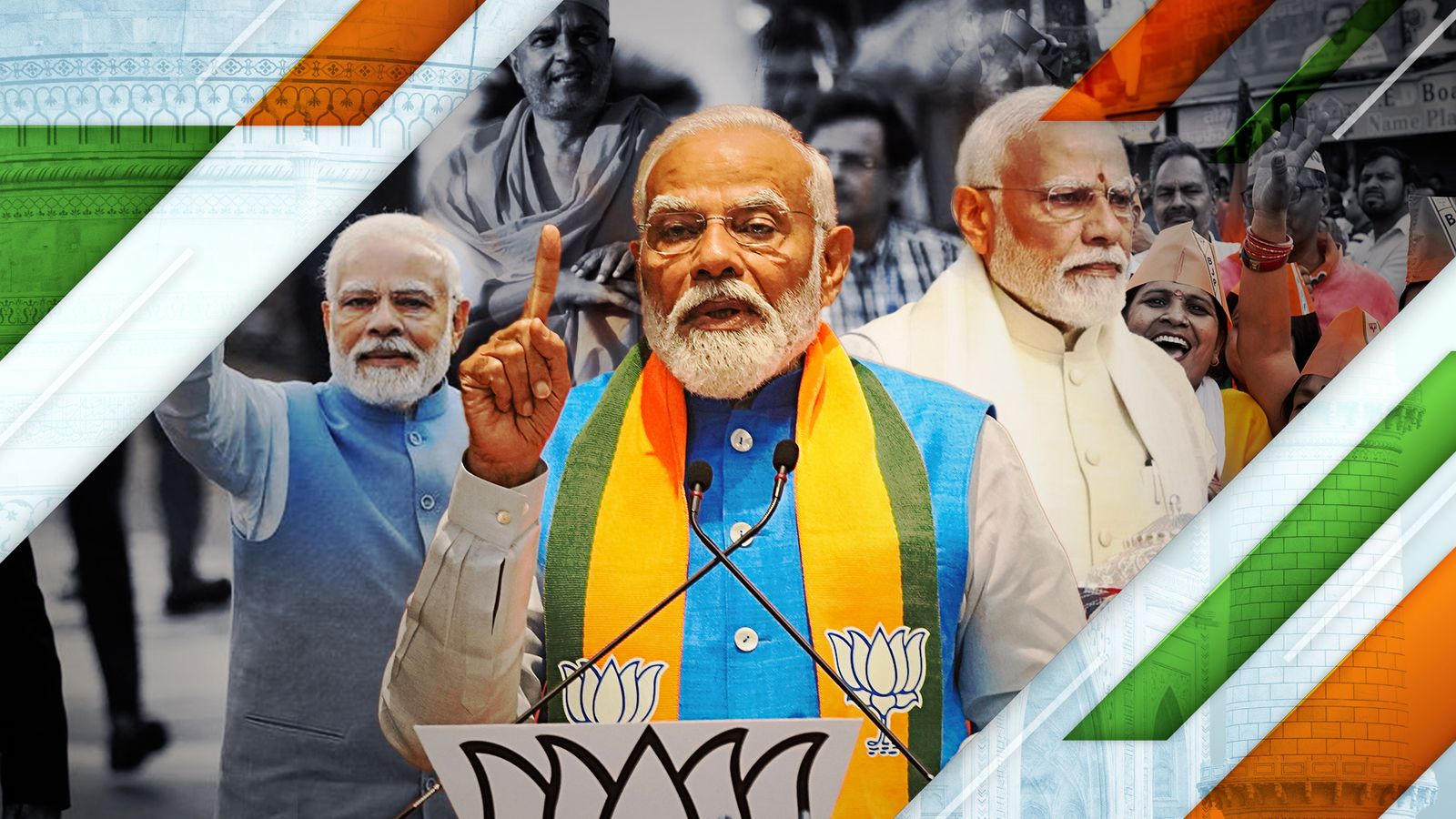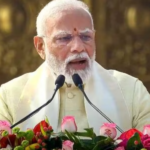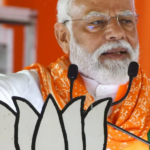With the National Democratic Alliance’s vote total hovering around 292 as of Tuesday’s Lok Sabha vote tallying, Prime Minister Narendra Modi’s third term looks all but guaranteed. The party in opposition, however, has emerged victorious after exceeding even the most modest predictions set by exit polls. Both Uttar Pradesh and Maharashtra, the two largest states in the nation, dealt blows to the governing Bharatiya Janata Party. Mamata Banerjee’s Trinamool Congress just avoided a crushing defeat in West Bengal, snatching a victory in the process.
Modi thanks voters
Prime Minister Narendra Modi praised voters and stated, “Today’s victory (is) a victory of world’s biggest democracy.” He spoke from the BJP’s headquarters in Delhi as it became clear that the party will form the new government, although with much-needed help from NDA partners.
After Jawaharlal Nehru, the country’s founding prime minister, Modi will become the second leader to receive a third term; he has pledged to implement sweeping reforms throughout his administration. He has pledged to make India’s economy the third biggest in the world in three years, following China and the US, and throughout his tenure, the country’s GDP has grown at the quickest rate of any major economy in the world.

The ‘kingmakers’
Two important BJP allies, Nitish Kumar of Bihar and N Chandrababu Naidu of Andhra Pradesh, are now in the limelight. The two of them have approximately 30 seats between them, which would allow the NDA to establish the next government. Naidu and Kumar were both in the opposition before they left the NDA on different issues.
UP, Maharashtra key factors
Uttar Pradesh and Maharashtra were the states where the BJP suffered the most setbacks. A spectacular performance was pulled off by the Samajwadi Party (SP) in Uttar Pradesh. With 36 seats for Akhilesh Yadav’s SP compared to the BJP’s 33, the SP shocked observers and might be the day’s biggest star. Seven seats were won by the Congress. The BJP was expected to secure around 70 seats in the state according to the exit polls. It seemed like Mayawati’s BSP members voted strategically, switching allegiance to the SP, and the party collapsed with not a single seat.

It was accurate to say that the BJP would suffer a significant loss in Maharashtra. Unexpectedly, the Maha Vikas Aghadi alliance—which includes the Congress, the NCP (SP), and the Shiv Sena (UBT)—has performed exceptionally well.
Big battles
Several well-known politicians fought fiercely for office, and in Amethi, former federal minister Smriti Irani—who had previously defeated Rahul Gandhi five years prior—lost badly to Kishori Lal Sharma, a supporter of the Gandhi family. In a heated three-way race in Thiruvananthapuram, Shashi Tharoor emerged victorious against Rajiv Chandrasekhar of the BJP. The tide turned in Tharoor’s favor when voters along the coast decided to support him. The BJP’s inaugural victor in the Keralan town of Thrissur was actor Suresh Gopi. Even in this three-cornered battle, the Congress was vanquished.
Rahul Gandhi triumphed with a massive 3,88,00 vote margin in his constituency of Raebareli in Uttar Pradesh and Wayanad in Kerala. He was forthright about not having decided at a news conference when asked whose constituency he would step down from. According to Gandhi, “the country has unanimously and clearly stated, we do not want Narendra Modi and Amit Shah to be involved in the running of this country. We do not like the way they have run this country.” She later addressed reporters. “Wow, what a profound message.”
With an electoral victory of more than 8 lakh votes, former chief minister of Madhya Pradesh Shivraj Singh Chauhan showed his dominance over the state and can be considered the day’s biggest victor. Compared to his 2019 victory margin of 4.79 lakh votes, Prime Minister Modi’s 1.5 lakh vote advantage in Varanasi was significantly smaller.

Implications for policymakers and markets
Stocks plummeted after poll results revealed that Modi will rely on regional parties whose political allegiances have fluctuated since he surged to prominence in 2014, frightening investors. After a decade of Modi’s authoritarian reign, this, according to analysts, might throw policymaking into disarray.
The campaign for the Lok Sabha
Starting off his re-election campaign by highlighting his accomplishments over the past decade, Prime Minister Modi has since shifted his focus to mostly criticizing the Congress, which he accuses of favoring specific ethnicities and sectors. The Congress party, of course, denies this accusation. Affirmative action and protecting the Constitution from what the opposition saw as Modi’s “dictatorial rule” were major platforms of the opposition’s campaign, while the BJP strongly denied this.
According to polls, respondents were most worried about inflation and unemployment.








